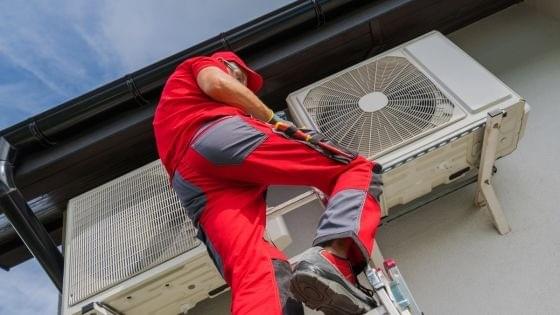
When deciding on a commercial air conditioning system, several vital variables can significantly affect your choice-making process. No matter if you're updating an existing system or installing one for a new commercial space, these factors make sure you select the most suitable option to meet your needs. Have more information about Commercial Air Conditioning Killingworth
1. Capability and Size
One of the principal things to consider is definitely the potential and size of your air conditioning unit. Commercial areas change in size and consumption requirements, so it's important to pick a system that could efficiently awesome the entire area without overloading or underperforming. An HVAC specialist can execute a load calculation to determine the appropriate ability necessary based on factors like square video footage, occupancy, warmth-producing equipment, and insulation levels.
2. Energy Efficiency
Energy productivity not merely decreases working charges but also plays a part in environmental sustainability. Look for units with high Periodic Energy Performance Ratio (SEER) scores and Energy Star certification. These systems consume a lot less energy while delivering optimal performance, ensuring long-term savings on utility expenses.
3. Maintenance Needs
Regular maintenance is essential for your longevity and performance of commercial air conditioning systems. Take into account the maintenance demands of several units—some might need much more frequent filter modifications, inspections, or skilled servicing. Picking systems with readily available factors and crystal clear maintenance practices can improve care and minimize downtime.
4. Noise Levels
In the commercial placing, abnormal noise from HVAC units can affect productivity and customer experience. Select air conditioning systems designed with sound reduction capabilities or locate outdoor units strategically to reduce noise affect inside your home. Manufacturers often give noises level scores (in decibels) that can guide your selection process.
5. Installation and Space Restrictions
Installation logistics and space limitations are essential elements, especially in retrofitting or improving pre-existing commercial buildings. Consider the design from the space, gain access to things for installation, and compatibility with present ductwork or ventilation systems. Choosing a unit which fits in your own space restrictions assures an even installation process without major architectural modifications.
6. Charge and Budget
Controlling upfront fees with long-term savings is key when selecting a commercial air conditioning system. Compare first acquire charges, installation expenditures, and projected working expenses across the system's life-span. In addition, ask about financing options, incentives, or tax bonuses designed for energy-efficient HVAC systems to maximize cost-efficiency.
7. Warrantee and Support
A robust guarantee and trustworthy customer support are essential for satisfaction. Evaluate the warrantee coverage available from manufacturers, which include parts and effort, and question more support services for example emergency repairs, technical guidance, and availability of replacement parts. A respected manufacturer or installer must provide complete support through the system's lifecycle.
FAQ
Q: How frequently should commercial air conditioning systems be maintained?
A: It's recommended to service commercial AC systems at least 2 times a year—before the cooling down season and ahead of the heating season—to make certain ideal performance and performance.
Q: Just what is the common life expectancy of the commercial air conditioning unit?
A: With correct maintenance, commercial air conditioning units can last 15-20 years generally, however this can vary depending on utilization, setting, and maintenance methods.
Q: May I put in a number of units for different areas within my commercial space?
A: Of course, multi-zone systems permit custom-made temp control in different areas of your own building, maximizing comfort and energy productivity.
Summary
Deciding on the right commercial air conditioning system involves thinking of variables including capability, energy efficiency, maintenance demands, sound levels, installation demands, cost-performance, guarantee coverage, and customer support. By carefully evaluating these elements and consulting with HVAC professionals, you can ensure your commercial space stays comfortably cooled while improving energy utilization and working costs over time.

